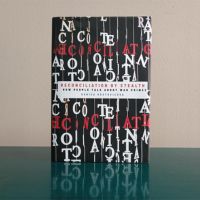Reconciliation by Stealth: How People Talkabout War Crimes
 Book review: Denisa Kostovicova, Reconciliation by Stealth: How People Talkabout War Crimes, Cornell University Press, 2023.
Book review: Denisa Kostovicova, Reconciliation by Stealth: How People Talkabout War Crimes, Cornell University Press, 2023.
Jasna Dragović – Soso
When it comes to the post-conflict Balkans, publications in the field of Transitional Justice are numerous. The region has been, as Eric Gordy and I noted more than 10 years ago, a veritable ‘laboratory of transitional justice initiatives’, although I think it would be fair to say most of the public attention has been focused on the International Criminal Tribunal for the former Yugoslavia. In this context, it is worth noting that, over the last couple of decades, there have also been several truth commission initiatives, at the national and local levels, and above all, there was a regional initiative undertaken by the Coalition for RECOM, as this network of over 2,000 civil society organisations and individuals is known. Of all these various initiatives, RECOM has by far been the most original and also the most sustained project—spanning over a decade, and including, as Reconciliation by Stealth notes, years of consultations with various stakeholders across the region. It has thus attracted a fair amount of interest and scholarship, generating differing assessments of the project’s process and impact. Where does Kostovicova’s book sit within this literature?
Reconciliation by Stealth adopts an original approach to RECOM. It doesn’t focus on the politics of the project, nor its internal and external challenges which ultimately led to the project’s shelving in December 2019, which are only invoked in the first chapter of the book. Instead, the book meticulously examines the consultations undertaken by civil society activists between 2006 and 2011, which sought to define the nature and the remit of such a truth commission and eventually culminated in the drafting and adoption of a proposal for RECOM’s statute at the end of that period.
Like the author, I had the opportunity to be a part of the RECOM initiative in a small way over a number of years – participating in several International Forums for Transitional Justice until the project for a regional truth commission was shelved in December 2019. Some of the most illuminating – and moving – moments in those forums were the panels which brought together victims from different parts of the post-Yugoslav region. On those occasions, people who had experienced terrible trauma and losses during the wars of the 1990s spoke of their suffering and their struggle for justice, and there were many occasions in which there were real expressions of solidarity and offers of help and support by other participants. Although the regional truth commission that the civil society coalition sought never actually materialised, in these moments I felt as if those RECOM forums were really a type of informal truth commission, giving victims a platform to publicly speak of their experiences in a dialogical, respectful and empathetic setting.
The book’s claim – with which I wholeheartedly agree – is that the consultations undertaken under the auspices of the RECOM initiative had considerable value in-and-of-themselves, regardless of the final outcome of the project and its failure to generate the creation of an official institutional mechanism. I think this is an important point, considering that existing scholarship on transitional justice has too often tended to focus on institutions and on evaluations of their impact, and has also viewed RECOM through this prism. Kostovicova’s book asks us instead to focus on the substance of what RECOM did do – namely generate extensive inter-ethnic conversations about wartime crimes and suffering of ordinary people, as well as about people’s understandings, desires and expectations concerning truth-telling, justice and redress. And despite never producing a commission, RECOM did some unprecedented and very significant work in the region, which deserves to be recognised. So the book’s focus on consultations rather than institutions is an important contribution to the scholarship. This is my first point.
Secondly, I think Reconciliation by Stealth is important in that it brings together the process of communication across ethnic divides with the concept of ‘reconciliation’ – a concept that is of course at the heart of processes of Transitional Justice and post-conflict peacebuilding. As Kostovicova notes on several occasions throughout the book, ‘reconciliation’ – to which I would add the notion of ‘transitional justice’ itself – is often perceived in a critical way by analysts of the Balkans, as well as by the general public in the region. Over the last 30 years the term ‘reconciliation’ has become equated either with the payment of lip service to the values of Western democracy by unscrupulous politicians whose interest in victims is only to use them as political capital in contests for power and influence, or with Western donor money sustaining organisations that are sometimes viewed as cashing in while doing little to support ordinary people’s wellbeing.
In contrast to such critiques, Kostovicova returns to the original normative and emancipatory understanding of transitional justice and a notion of reconciliation as a relational concept, grounded ‘in the principle of mutuality in public communications’ (p. 8). Her focus is on the exchanges that took place among individuals from different ethnic groups during the RECOM consultations, and she notes that ‘reconciliation takes place when the divisive impact of ethnic identities is overcome in deliberative communication about war crimes across ethnic lines’ (p. 68) – something that she defines as ‘reconciliation by stealth’. By analysing the exchanges that took place during RECOM consultations both qualitatively and quantitatively, Kostovicova concludes that, on the whole, people were able to communicate with each other across ethnic divides in a way that showed mutual respect, empathy and common purpose.
What is significant here is that ‘reconciliation by stealth’ occurred – not when individuals were engaged in non-contested fields of communication – but when they were in the process of discussing the most difficult and divisive subjects relating to the wars of the 1990s, and their own personal losses and suffering. In other words, talking about the past and talking about war crimes generated feelings of mutuality and respect and reduced ethnic distance rather than increasing it – and this despite the inevitable reinforcing of ethnic identity that occurs when discussing crimes that are by their nature ethnic. This is an important finding, and one that is bound to generate some discussion.
The book’s findings also have important policy implications, as is noted at the end. As Kostovicova puts it, the question for policymakers and activists, both in the region and outside it, is ‘how to engineer… opportunities [for dialogue] in postconflict societies that are institutionally and socially segmented along identity lines while being mindful that not every contact between adversaries will be beneficial’ (p. 140). In this sense, RECOM was important in that it created a civic space in which dialogue in the context of difference could be pursued, leading to political positions and platforms about truth-telling and justice (as, for example, in agreement over the statute) that were mutually acceptable across the ethnic divides.
Reconciliation by Stealth represents an important and original contribution to the fields of transitional justice, post-conflict peacebuilding and the study of the post-Yugoslav region. And, like any excellent piece of scholarship, the book leaves us with new questions, two of which I would highlight. The first question concerns the viability of ‘reconciliation by stealth’ over time. Kostovicova correctly focuses on the dialogic process underpinning the notion of reconciliation, but how durable can such a process be considering the lack of social and institutional structures to support the solidarities that were created during the RECOM project? In other words, were the micro-solidarities created through these consultations something that could endure beyond the actual encounters and the period analysed? And, more generally and perhaps more provocatively, is reconciliation only reconciliation if it does endure over time?
Secondly, the book mentions the importance of individuals moderating and channelling the discussions among the individuals, especially victims, engaged in the RECOM process. However, how people talk about war crimes is inevitably to a large degree going to depend on how and by whom these conversations are initiated, led and moderated. The book alludes to this yet does not devote much space to analysing the role of leadership and agency in getting the deliberative process started and in subsequently driving it forward – both on the micro-level of individual consultations, and on the macro-level of producing a vision for the project as a whole and garnering support for the initiative.
Reconciliation by Stealth provides us with important insights and arguments, as well as food for further reflection on how reconciliation processes function and can be translated into new policy agendas.







